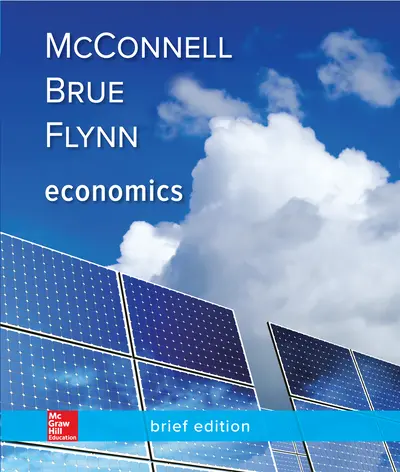My Account Details

ISBN10: 0078021871 | ISBN13: 9780078021879

* The estimated amount of time this product will be on the market is based on a number of factors, including faculty input to instructional design and the prior revision cycle and updates to academic research-which typically results in a revision cycle ranging from every two to four years for this product. Pricing subject to change at any time.
Instructor Information
Quick Actions (Only for Validated Instructor Accounts):
Chapter 1 Limits, Alternatives, and Choices
Chapter 2 The Market System and the Circular Flow
Part Two: Price, Quantity, and Efficiency
Chapter 3 Demand, Supply, and Market Equilibrium
Appendix 3: Additional Examples of Supply and Demand
Chapter 4 Elasticity of Demand and Supply
Chapter 5 Market Failures: Public Goods and Externalities
Part Three: Product Markets
Chapter 6 Businesses and Their Costs
Chapter 7 Pure Competition
Chapter 8 Pure Monopoly
Chapter 9 Monopolistic Competition and Oligopoly
Part Four: Resource Markets and Government
Chapter 10 Wage Determination
Chapter 11 Income Inequality and Poverty
Chapter 12 Public Finance: Expenditures and Taxes
Part Five: GDP, Growth, and Instability
Chapter 13 GDP and Economic Growth
Chapter 14 Business Cycles, Unemployment, and Inflation
Chapter 15 Aggregate Demand and Aggregate Supply
Chapter 16 Fiscal Policy, Deficits, and Debt
Part Six: Money, Banking, and Monetary Policy
Chapter 17 Money, Banking, and Financial Institutions
Chapter 18 Interest Rates and Monetary Policy
Part Seven: Long-Run Considerations and International Economics
Chapter 19 Long-Run Aggregate Supply and Aggregate Demand
Chapter 20 International Trade and Exchange Rates
Chapter 21 Behavioral Economics
Need support? We're here to help - Get real-world support and resources every step of the way.